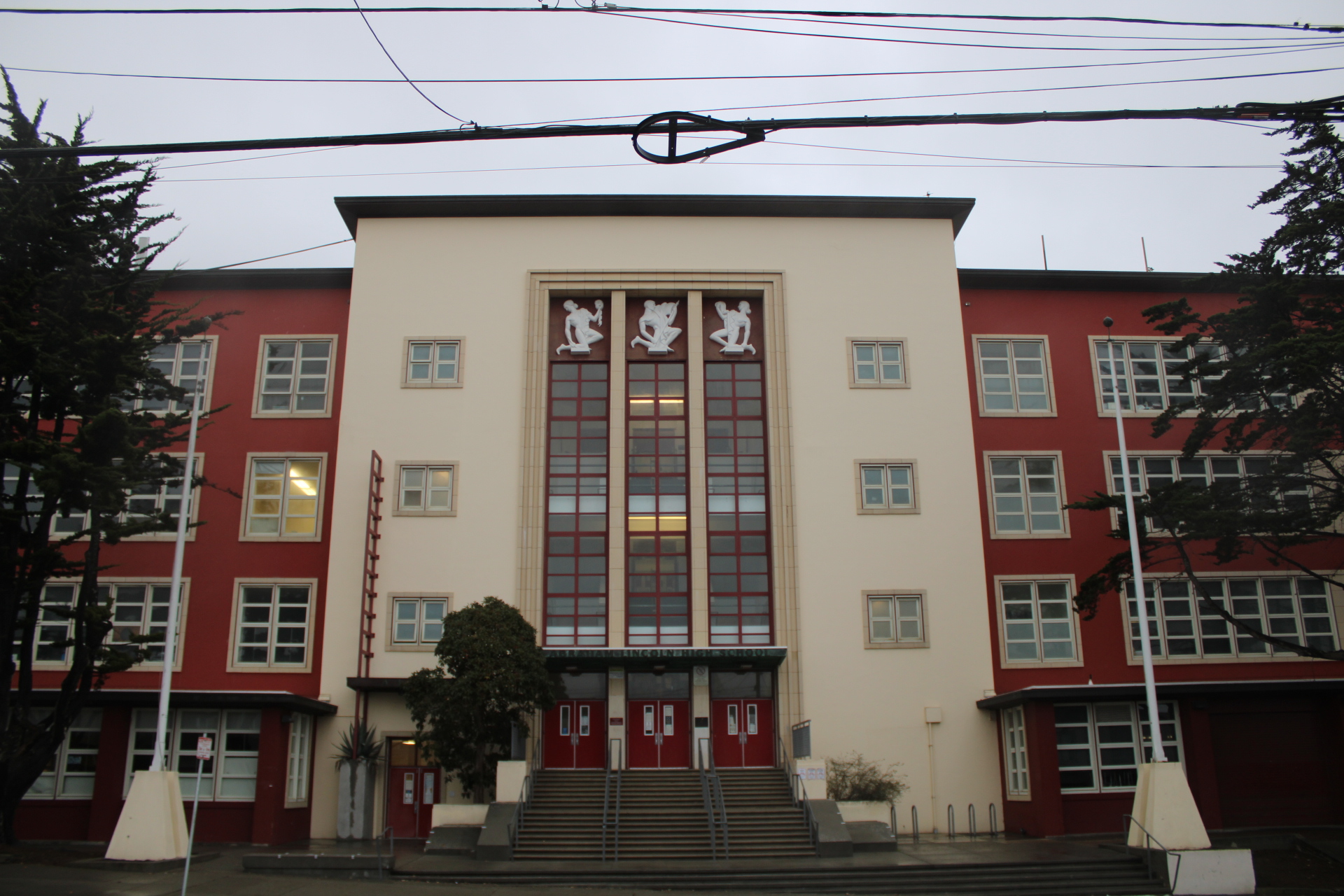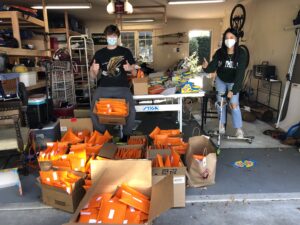Abraham Lincoln, Dianne Feinstein, John Muir, James Lick: these are not names that are usually associated with oppression, but San Francisco’s School Board feels schools have no business being named after them.
In 2020, San Francisco Unified School District (SFUSD) faced two of its most momentous issues of the past 40 years: a global pandemic that has shut schools for eight months and a contentious debate over renaming schools that has raised awareness not only in the city, but also put San Francisco public schools in the national limelight.
Aside from COVID-19, which has left students doing online learning, a long bubbling issue over the renaming of one-third of the district’s schools named after people, places or concepts that have any connection to oppression or violence against marginalized communities has come to a head. The resulting clash has pitted people against each other in both the school board and the San Francisco public school community.
Some of the schools on the list include Abraham Lincoln High School, due to Lincoln’s treatment of Native Americans; Dianne Feinstein Elementary School, due to Senator Feinstein allowing a Confederate flag to be waved at San Francisco City Hall in the 1980s as part of a historical flag display when she was Mayor; and Mission High School, due to the mission system’s oppression of Native tribes in California.
Changing the names of schools had been a topic of conversation in the School Board for many years, but the resolution that called for an all-volunteer School Names Advisory Committee to be in charge of the renaming process was first issued in 2018. Some schools in SFUSD have changed their names on their own in the past. For example, Hawthorne Elementary School was changed to Cesar Chavez Elementary, and Douglass Elementary School was changed to Harvey Milk.
“We knew that there were still names out there that still needed to be looked at but those communities weren’t going to do it on their own,” said SFUSD Board of Education President Mark Sanchez in a video posted on School Board Member Alison Collins’ website on October 19. “So we wanted to have a systematic approach to renaming and that’s why I created this resolution.”
Resolutions in the school board always take time to be implemented, so the School Names Advisory Committee — composed of teachers, parents, students and community organizers — didn’t begin meeting until December 2019. Committee members began researching the histories of the people and places San Francisco public schools were named for, and by August 2020, the committee had created a list of all the schools in SFUSD with names connected to the oppression of marginalized communities. All schools on that list have been given until January of 2021 to discuss with their community a possible new name for the school.
The news of renaming schools in San Francisco became a hot topic of conversation during the first half of the 2020-2021 school year. Because the list of schools came out in the midst of the global COVID-19 pandemic when the staff and students of public schools are not meeting on campus, many people felt that this was a bad time to be discussing their renamings. “I was pretty disappointed when I first heard about it in August because I thought it might be more prudent to make plans to get the kids back in school,” said Carrie Wonzer, a parent at Washington High School, a school that’s on the list for renaming.
Jesse Mon, a senior at Lincoln High School, knows a lot of students who are very passionate about the name changes. “But those people still agree that going back to in person learning is more important,” he said.
The pandemic has been a massive issue for the school district and has kept students home for eight months, leaving many parents facing a choice between going to work and staying at home with children — an especially hard choice for working class families. “It’s offensive to parents who are juggling their children’s daily at-home learning schedules with doing their own jobs and maintaining their sanity,” said Mayor London Breed in a statement on October 16.
The school district has been widely criticized by parents, students and teachers due to its lack of coherent planning and communication for returning to in-person learning, especially as many private schools across the city are going back while all public schools are still online.
“Look, I believe in equity. But the fact that our kids aren’t in school is what’s driving the inequity. Not the name of a school,” said Breed.
Many students and parents think that the renaming process came in the wake of the Black Lives Matter protests over the summer, not a two year long process that just happened to come into the limelight in the midst of the COVID-19 crisis. When asked if she had been aware that this was an ongoing process, Lowell parent Kristin Belshaw said, “Not at all. I definitely heard more about it during the time the school board meetings were happening for Lowell.” Those school board meetings occurred in October.
Many board members and teachers argue against Breed, saying that renaming schools is not something that should be put on hold.
“The school district is not just one thing, it is multiple things all at once. And so this whole issue of should we be focusing on the names versus opening is something the mayor created to try and put pressure on the school board,” said Amelia Bjorklund, a teacher at Balboa High School. “I think it’s totally messed up to say that you can’t address the racism and white supremacy in our school name because the schools have to reopen.”
Many have speculated the renaming process might take away from student learning and community bonding, but for some schools, the renaming process has sparked important discussions in classrooms and brought school communities together.
“Going through the school renaming process has been actually really good for my teaching because it has really made me think about and source who we are looking up and why,” said Jeremiah Jeffries, a teacher at Redding Elementary School and a volunteer on the School Names Advisory Committee.
Miranda Martin, the Communications Director of Parents for Public Schools, also talked to a mother at a San Francisco public school who felt that the renaming process was a great opportunity. “She said they were having really rich discussions about the renaming in their school community,” she said.
For some parents, the renaming of schools is crucial. “If my kid is going to a school that is named after someone who committed genocide or was harmful to minority groups, then that’s not reflecting SFUSD’s values,” said Mari Villaluna, a public school parent and indigenous activist in the Collins video. “I want my kid to enter a school that represents social justice, diversity and unity.”
James Lick Middle School is on the list, though it is unclear what Lick did to meet the criteria for the school’s name to be changed. Lick made his money during the gold rush as a landowner in San Francisco and, in the later years of his life, donated a large part of his fortune into creating the California School of Mechanical Arts — now known as Lick-Wilmerding High School.
When asked, Lick-Wilmerding High School’s Head of School Eric Temple said he had no idea what Lick might have done to deserve a spot on the list. “He was pretty eccentric, but he did leave his money to a lot of great causes,” Temple said. All Temple could think of was that he was “an industrialist and owned a lot of land.” No description of Lick’s supposed misdeeds has been published by the school district or the ad-hoc group that created the list.
Would Lick-Wilmerding consider changing its name? Temple said he didn’t have an answer for that right now. The school is open to finding out more about Lick and engaging with the idea of changing the name if it proves necessary. “It’d be a really interesting community conversation,” said Temple.







